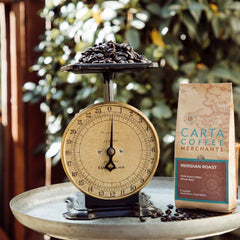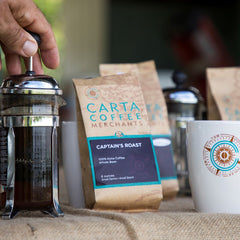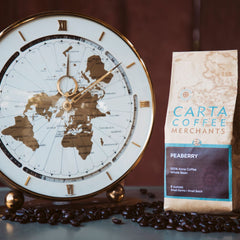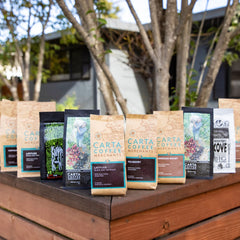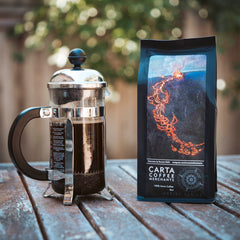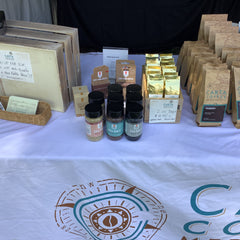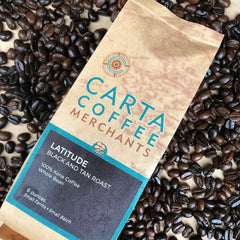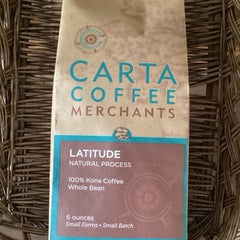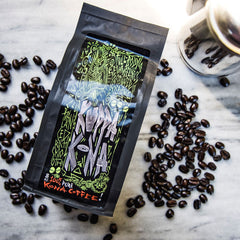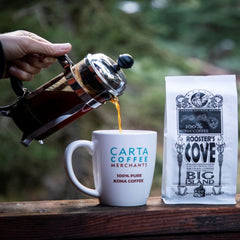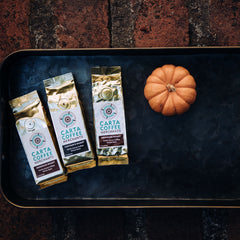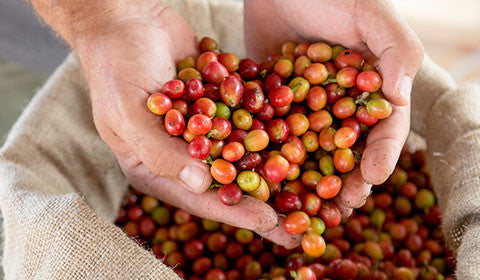Posted on

They’re convenient, delicious, and perfect for those rushed Monday mornings. But are Keurig and their K-Cups contributing to the destruction of our environment? If so, is traditionally packaged coffee really that much better?
Arguments surrounding these little pods have been ongoing since their inception. Even their creator acknowledges guilt about his invention’s waste. However, is it bad enough to toss out that Keurig machine for good, or even stop consuming coffee altogether?
What is a K-Cup?
In 1997, Keurig launched its signature, single-use coffee pod. Boasting over 20 million machines across North America, Keurig claims they were founded on a mission of social responsibility and “using the power of business to brew a better world.”
Officially called the K-Cup, each pod consists of a small plastic cup, aluminum lid, and a filter. Each cup is filled with ground coffee, tea, hot chocolate, or other brewable substances.
K-Cups are designed specifically for the Keurig brewing machines. At the touch of a button, users have access to over 500 drink varieties and over 60 brands. From classic Starbucks coffee to Tazo teas, endless refreshment options have become easily accessible in our own homes.
So What’s the Problem?
Keurig produced 9.8 billion non-biodegradable K-Cups in 2015, each taking up to 500 years to break down. Put end-to-end, they’d circle the globe around 10.5 times! That’s a lot of waste. Some cities around the world, like Hamburg, Germany, have even banned the use of these machines in state buildings due to their negative environmental impact.
Each K-Cup is also considerably more expensive than simply using traditional coffee grounds. Your basic Folger’s brand K-Cup will cost around $50 a pound. Even high-end traditionally packaged beans averages at around $15-20 a pound, and Dunkin Donuts Original Blend will set you back $8.99 a pound.
It may take a few more minutes to enjoy your brew using a basic coffee maker or French press, but the financial and environmental perks are undeniably substantial.
Is Keurig Doing Anything?
In 2016, Keurig finally announced the manufacturing of recyclable K-Cups, with a goal of making all pods recyclable by 2020. Eventually, all Keurig brands will replace their composite plastic K-Cups with fully recyclable polypropylene #5.
However, Keurig coffee lovers can’t simply pop out used pods and toss them in the bin. Coffee grounds and aluminum are not recyclable. After each serving, the foil and contents must be completely removed.
Taking a few extra seconds to clean each pods should be easy, but let’s be honest. It’s likely that the majority of users will still toss the empty cups in the trash, or neglect to correctly clean them. Chances are, most K-Cups are still destined for the landfill.
Still, Keurig argues that the pure efficiency of their machine saves resources. Users insert the exact amount of water and grounds needed for each cup. This eliminates dumping all that extra coffee, and precious water, down the drain.
What is the environmental impact of regularly packaged coffee?
Like any massive, global industry, the environmental impact of coffee doesn’t lie only with Keurig. From deforestation, to pesticide use, disposable cups, and more, our caffeine obsession certainly takes its toll on our planet.
However, green-minded coffee enthusiasts will have zero problems finding a plethora of traditional brands dedicated to sustainable practices. The ability to choose exactly where your coffee coffee comes from puts the power in your hands.
Many traditional coffee companies boast eco-friendly, fair trade, and ethical practices. Check for labels certifying them approved by the Rainforest Alliance, or describing their socially and environmentally conscious harvesting practices. Few Keurig compatible coffees offer consumers truly green choices.
What are the alternatives?
So you understand the potentially devastating effects of single-use coffee pods, and traditional coffee conglomerates. Does that mean it’s time to give up on your favorite, frothy morning routine altogether?
Of course not! There are countless ways to enjoy coffee sustainably and responsibly. Here are a few tips:
- Choose beans certified as sustainably grown and manufactured
- Make only the amount of coffee you need, minimizing water waste
- Use reusable coffee cups, mugs or thermoses
- Buy organic, fair-trade coffee beans
- Skip disposable stirring sticks and use spoons
- When using disposable cups, always recycle
- Recycle your coffee grounds!
There are also several refillable Keurig compatible filters on the market, like Goodcups. Fill these completely BPA-free pods with any coffee, providing the freedom for you to research and choose the most Earth-friendly brands on the market.
Are they worth it?
Only you can make the decision about whether single-use coffee pods are worth it. There is no denying that those tiny cups quickly fill up landfills, and drain pockets.
However, if you’re the only coffee drinker at home, making a whole pot can feel wasteful. Or in the midst of a busy life, getting that buzz at the push of a button sometimes means the world.
If you do choose to stick with Keurig, ensure you stay educated on how you can contribute to reducing that extra waste. Always purchase recyclable K-Cups, filled with certified eco-friendly coffee. Recycle each pod correctly, and look into reusable options where you can choose your own coffee and reduce waste.
Looking for exceptional, world-class coffee created to be kind to our planet? Perfect for traditional coffee machines, or in reusable coffee pods, Carta Coffee is proudly and sustainably grown in Kona, Hawaii. We pride ourselves in cultivating only the best beans from one of the greatest coffee growing regions on Earth.
